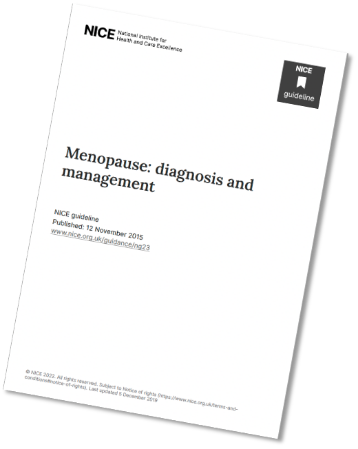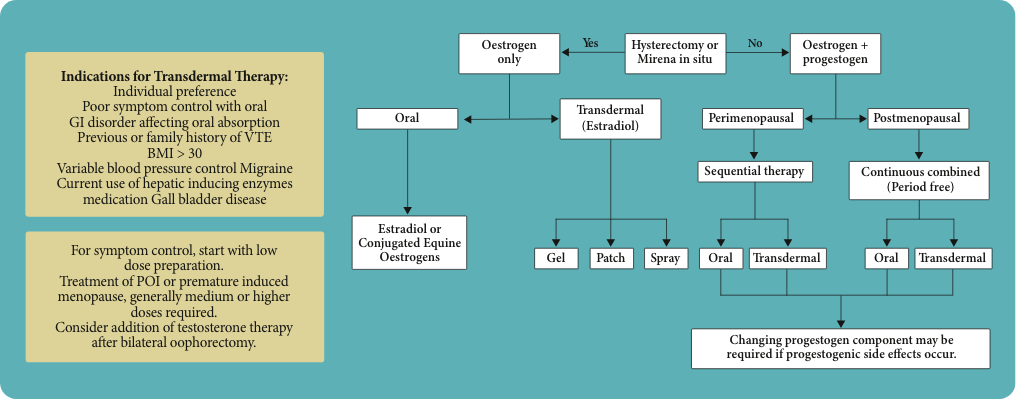NICE Guideline NG23 – Menopause
diagnosis and management recommends
that prescribers:1

- Practise individualised care for women - seeking to understand lifestyle factors and therapy preferences prior to prescribing a therapy
- Consider only using an FSH test in women aged 40 to 45 years with menopausal symptoms, including a change in their menstrual cycle, or in women aged under 40 years in whom menopause is suspected
- Offer women HRT for vasomotor symptoms after discussing with them the short-term (up to 5 years) and longer-term benefits and risks
- Consider HRT to alleviate low mood that arises as a result of the menopause
- Do not routinely offer selective serotonin reuptake inhibitors (SSRIs), serotonin and norepinephrine reuptake inhibitors (SNRIs) or clonidine as first-line treatment for vasomotor symptoms alone
- The risk of VTE associated with HRT is greater for oral than transdermal preparations. Consider transdermal rather than oral HRT for menopausal women who are at increased risk of VTE, including those with a BMI over 30 kg/m2
- Ensure that menopausal women and healthcare professionals understand that HRT does not increase cardiovascular disease risk when started in women aged under 60 years
- Explain to women that taking HRT (either orally or transdermally) is not associated with an increased risk of developing type 2 diabetes
British Menopause Society HRT Guide –
Systemic HRT Treatment:2

Current recommendations advise that the lowest effective dose of
oestrogen be used, which applies to all therapy areas.3
Content adapted from British Menopause Society HRT Guide, which refers to HRT class. Please consult the Lenzetto SmPC for prescribing information.